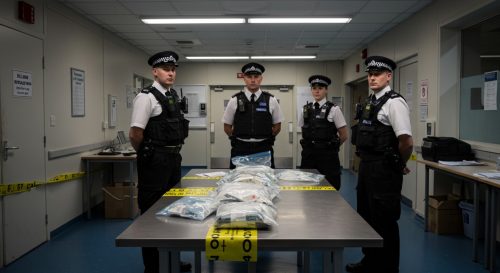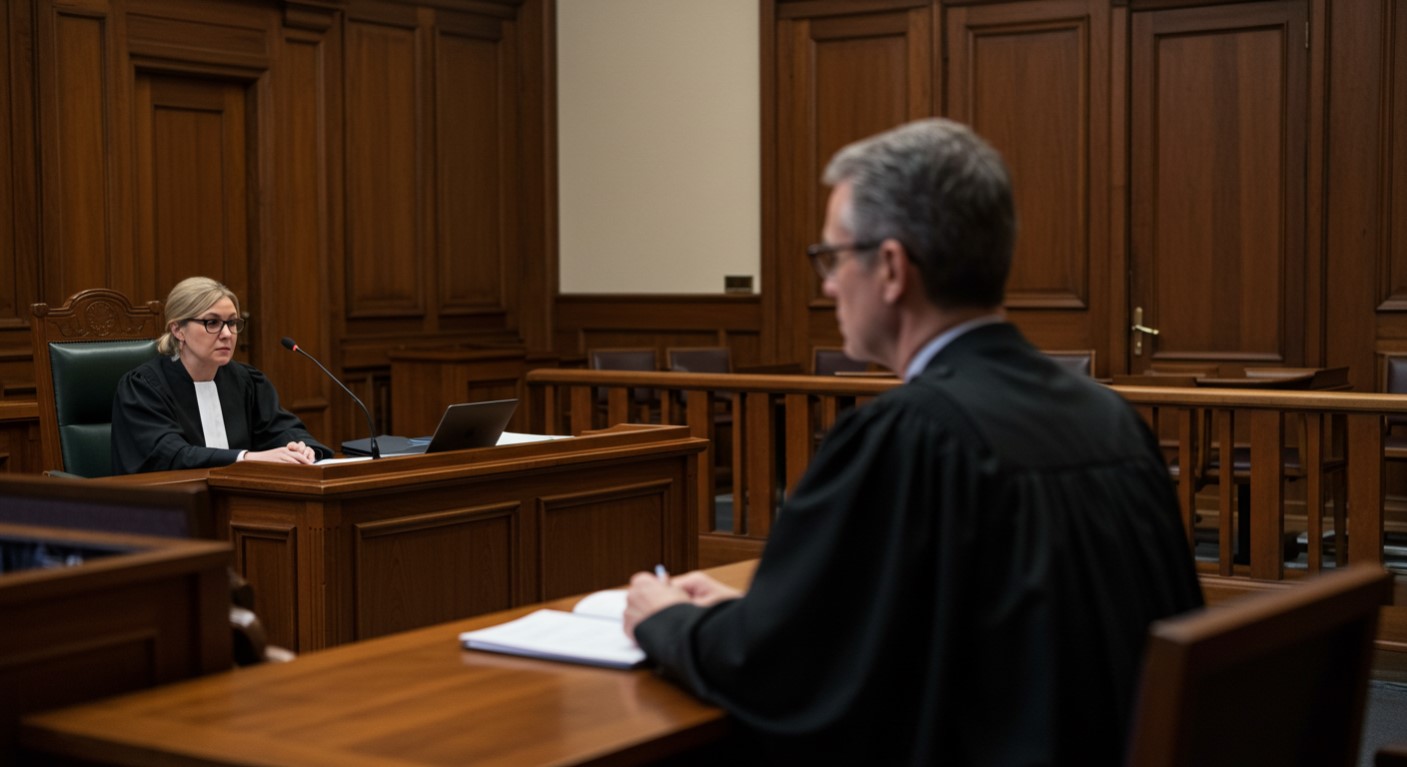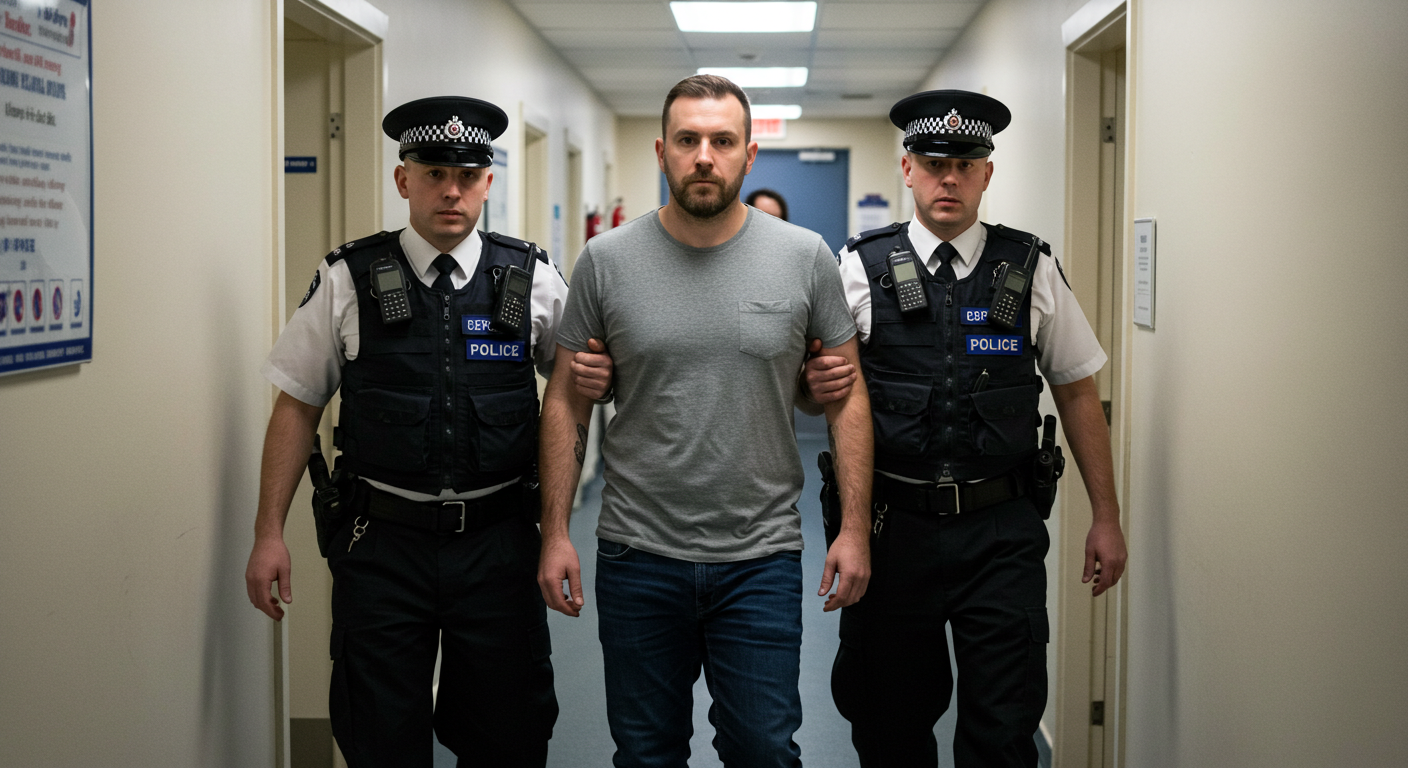What Is Considered Drug Trafficking Under UK Law?

What Is Considered Drug Trafficking Under UK Law?
Drug trafficking is a serious offence under UK law that involves the illegal production, transportation, sale, or distribution of controlled substances. It is an activity that fuels the illicit drug trade and poses significant harm to individuals and society as a whole. Drug trafficking encompasses various forms such as smuggling drugs across borders, operating drug networks, and selling drugs on a large scale.
According to the Misuse of Drugs Act 1971 , drug trafficking under uk law is categorised based on the severity of the substance involved and the quantity of drugs. Different drugs are classified into different classes, with Class A substances carrying the most severe penalties.
The penalties for drug trafficking can range from fines to lengthy prison sentences, depending on the quantity of drugs involved and the role of the offender in the operation.
Several factors are taken into consideration in drug trafficking cases, including the quantity and value of drugs, the role and involvement of the offender, prior convictions, and any aggravating or mitigating circumstances.
However, there are potential defences and legal issues that can be raised in drug trafficking cases, such as lack of knowledge or intent, unlawful search and seizure. It is crucial for individuals facing drug trafficking charges to seek legal representation to ensure their rights are protected throughout the legal process.
The consequences of drug trafficking convictions are severe and can have long-lasting effects. In addition to imprisonment, individuals may face the seizure of assets obtained through drug trafficking, which can have a significant impact on their financial and personal life.
Furthermore, drug trafficking convictions can result in long-term consequences such as limited employment, stigma, and loss of certain privileges.
Understanding the laws, penalties, factors considered, defences, and potential consequences of drug trafficking in the UK is essential for individuals involved in or affected by such cases. It is crucial to seek legal guidance to navigate through the complexities of the legal system and protect one’s rights and future.
What is Drug Trafficking?

Drug trafficking, a term that carries significant legal implications, is the focus of this section. Delving into its various aspects, we will uncover the definition of drug trafficking as well as explore the different forms it can take.
Definition of Drug Trafficking
Drug trafficking, the illegal production, transportation, and distribution of controlled substances, is a serious criminal offence under UK law. It encompasses the movement of drugs across borders, typically in large quantities, for the purpose of generating profits.
The definition of drug trafficking includes supplying, offering to supply, or being involved in the production, preparation, or transportation of controlled drugs, encompassing both import and export activities.
Those involved in drug trafficking face severe penalties, including lengthy prison sentences and the seizure of their assets. Consequently, it is vital for law enforcement to implement effective measures to combat drug trafficking and safeguard society from the damaging consequences of illicit drugs.
Different Forms of Drug Trafficking
Drug trafficking encompasses a variety of forms, each presenting its own unique characteristics and law enforcement challenges. The different forms of drug trafficking include smuggling, transportation, distribution, and cultivation.
Smuggling entails the illicit transportation of drugs across borders, often using innovative concealment methods. Transportation refers to the movement of drugs within a particular country or region, at times involving the cooperation of organised networks.
Distribution involves the crucial task of delivering the drugs to the end consumer, frequently accomplished through street-level dealers or local gangs. Cultivation encompasses the illicit production of drugs, such as the growth of cannabis plants or the manufacture of methamphetamine.
Gaining an understanding of the diverse forms of drug trafficking is essential for effectively combating this illegal trade.
Laws and Penalties for Drug Trafficking in the UK

Drug trafficking in the UK is not to be taken lightly. The laws and penalties surrounding this crime are severe, designed to combat the widespread harm it can cause.
Misuse of Drugs Act 1971
This is a crucial piece of legislation in the UK that addresses drug trafficking. It categorises drugs based on their potential for abuse and medical use, with different penalties assigned to each category.
The Act aims to regulate and control the production, supply, and possession of controlled substances. Offences related to drug trafficking under the CSA can result in severe penalties, including imprisonment and the seizure of assets.
It is important for individuals involved in drug trafficking cases to seek legal representation to navigate the complexities of the CSA and explore potential defences such as lack of knowledge or intent, unlawful search and seizure, or modern slavery.
Classification of Drugs
- Class A Maximum: penalty of life imprisonment and an unlimited fine
- Class B Maximum: penalty of 14 years imprisonment and an unlimited fine
- Class C Maximum: penalty of 14 years imprisonment and an unlimited fine
The classification of drugs in the UK is an essential aspect of drug trafficking legislation. The data above provides an overview of the drug classifications according to the Misuse of Drugs Act 1971 highlighting the penalties associated with each class.
The classification of drugs determines the seriousness of the offence and the associated punishments. It is crucial to understand the various drug classifications when considering the legal implications and penalties of drug trafficking in the UK.
Penalties for Drug Trafficking
Penalties for drug trafficking in the UK vary depending on the type and quantity of drugs involved, as well as the offender’s role and previous convictions. The data below provides an overview of the potential penalties for drug trafficking offences:
- Class A Drugs: Up to life imprisonment and/or an unlimited fine
- Class B Drugs: Up to 14 years imprisonment and/or an unlimited fine
- Class C Drugs: Up to 14 years imprisonment and/or an unlimited fine
It’s important to note that these penalties for drug trafficking can vary based on the specific circumstances of each case. Offenders may also face additional penalties, such as the seizure of assets and long-term consequences on their personal and professional lives.
Factors Considered in Drug Trafficking Cases

In drug trafficking cases, several crucial factors come into play that determine the severity of the offence. From the quantity and value of drugs involved to the role and involvement of the offender, every detail can impact the sentencing and outcome of the case. Prior convictions, as well as aggravating and mitigating factors, are also carefully assessed.
Quantity and Value of Drugs
The quantity and value of drugs play a crucial role in drug trafficking cases in the UK. The severity of the charges and the penalties imposed are heavily influenced by these factors. Here is a breakdown of how quantity and value are considered in drug trafficking cases:
- Large quantities of drugs (e.g., kilograms) – High street value
- Smaller quantities of drugs (e.g., grams) – Lower street value
Different drugs carry different weight limits for different sentences Value determines the potential profit and impact on society
The quantity and value of drugs seized during an arrest can lead to serious consequences, including lengthy imprisonment and the seizure of assets. It is important to understand the implications of these factors in drug trafficking cases and seek legal representation to navigate the complexities of the law.
Role and Involvement of the Offender
The role and involvement of the offender play a critical part in drug trafficking cases. Factors like the level of involvement, hierarchy within the organisation, and the role in the drug distribution network are taken into account.
Offenders can have varying levels of involvement, ranging from low-level couriers to high-ranking leaders. The severity of the offender’s role can impact the penalties they face if convicted. The extent of the offender’s knowledge about the operation and their level of participation can also significantly influence the outcome of the case.
Prior Convictions
Previous convictions play a critical role in drug trafficking cases in the UK, affecting the severity of penalties imposed by the legal system.
- Prior Convictions Aggravating Factor: Previous drug-related offences may lead to increased penalties, including longer prison sentences and higher fines.
- Quantity and Value of Drugs Influential: Larger quantities or higher values of drugs may result in harsher sentences.
- Role and Involvement of the Offender Significant: Individuals in leadership positions or with a major role in drug trafficking operations may face more severe consequences.
- Aggravating and Mitigating Factors Considered: The presence of aggravating factors, such as violence or use of firearms, or mitigating factors, like cooperation with law enforcement, can impact sentencing.
Aggravating and Mitigating Factors
Aggravating factors and mitigating factors are crucial considerations in drug trafficking cases. These factors influence the severity of penalties imposed on offenders. Here is a table highlighting some common aggravating and mitigating factors:
| Aggravating Factors | Mitigating Factors |
| Prior convictions for similar offences | Lack of previous criminal record |
| Involvement in a large-scale drug trafficking operation | Minor role or coerced involvement |
| Possession of firearms or weapons during drug trafficking | No possession of firearms or weapons |
| Involvement in drug trafficking as a means of supporting an addiction | Seeking treatment for addiction |
These factors help determine the appropriate punishment, weighing the seriousness of the offence and the defendant’s level of culpability. Defendants should consult with a legal professional to understand how these aggravating and mitigating factors may impact their specific case.
Defences and Legal Issues in Drug Trafficking Cases

In the realm of drug trafficking cases, navigating the complexities of defences and legal issues is crucial. From establishing lack of knowledge or intent to challenging unlawful search and seizure, this section delves into the various avenues one can explore when facing charges. Explore the potential pitfalls of entrapment and the vital role of having proper legal representation.
Lack of Knowledge or Intent
A lack of knowledge or intent can serve as a potential defence in drug trafficking cases in the UK. If an individual can demonstrate that they were not cognisant of the illegal nature of the drugs or did not have any intention to distribute or sell them, they may be able to utilise this defence.
It is significant to acknowledge that the responsibility of proving lack of knowledge or intent lies with the defendant in establishing their case. Moreover, it is imperative to seek the advice and assistance of a proficient legal representative who can offer guidance and support throughout the legal proceedings.
Unlawful Search and Seizure
Unlawful search and seizure is a critical issue in drug trafficking cases. The UK law requires that searches and seizures be conducted lawfully, with appropriate legal authorisation. If evidence is obtained through an unlawful search or seizure, it may be deemed inadmissible in court.
This highlights the importance of ensuring that law enforcement follows proper procedures and respects individuals’ rights during investigations. Defendants facing drug trafficking charges should be aware of their rights and seek legal representation to challenge any potential violations of unlawful search and seizure.
Protecting against such violations can significantly impact the outcome of a case.
Entrapment
Occurs when law enforcement officials induce or persuade someone to commit a crime they would not have otherwise committed. In drug trafficking cases, entrapment can be a defence strategy.
Legal Representation
Legal representation is of utmost importance in drug trafficking cases to guarantee a just trial and safeguard the rights of the accused. Here are several compelling reasons that highlight the significance of having legal representation:
- Expertise: Criminal defence lawyers possess extensive knowledge of drug trafficking laws and can offer valuable guidance and strategic advice throughout the legal proceedings.
- Case evaluation: An lawyer will meticulously examine the evidence against the defendant, identifying any weaknesses or inconsistencies that can be utilised in their defence.
- Negotiation: A proficient lawyer can negotiate with prosecutors to potentially reduce charges or penalties, including exploring alternative sentencing options.
- Investigation: Legal representation can conduct a comprehensive investigation into the case, including interviewing witnesses, gathering evidence, and challenging the credibility of law enforcement procedures if necessary.
- Defence strategy: Lawyers will formulate a robust defence strategy tailored to the specific circumstances of the case, presenting compelling arguments and evidence to support the defendant’s innocence or mitigate their involvement.
- Courtroom advocacy: Attorneys experienced in drug trafficking cases can effectively advocate for their clients in court by delivering persuasive arguments, skillfully cross-examining witnesses, and challenging the prosecution’s case.
- Protecting rights: Legal representation guarantees that the defendant’s rights, such as the right to a fair trial, protection against unlawful searches and seizures, and the right to remain silent, are upheld.
Consequences of Drug Trafficking Convictions

Drug trafficking convictions carry severe consequences that can impact individuals for the long term. From potential imprisonment to the seizure of assets, the aftermath of being convicted for drug trafficking is stark.
Imprisonment
Drug trafficking convictions in the UK can lead to significant sentences of imprisonment. The length of imprisonment depends on various factors, including the type and quantity of drugs involved, the role and involvement of the offender, and their prior convictions.
For example, individuals convicted of drug trafficking can face sentences ranging from a few years to life imprisonment. Imprisonment serves as a deterrent and punishment for drug trafficking offences, aiming to protect society from the harmful effects of drug distribution.
It also serves to send a message that drug trafficking is a serious crime that will be met with severe consequences.
Seizure of Assets
Seizure of Assets is a severe repercussion that accompanies convictions related to drug trafficking. Following a conviction, authorities have the power to seize any property or assets that have been obtained through illicit drug activities. This comprises of cash, vehicles, property, and other valuable possessions.
Typically, the confiscated assets are sold, and the proceeds are utilised to support law enforcement operations or aid victim compensation programs. The value of the seized assets can be significant, leading to substantial financial setbacks for individuals involved in drug trafficking.
This acts as a strong deterrent and is intended to disrupt the financial aspect of drug networks, creating difficulties for criminals to profit from their unlawful undertakings.
Long-term Consequences
- Drug trafficking convictions in the UK have severe long-term consequences for individuals involved in such activities. Here are some of the long-term consequences that individuals may face as a result:
- Imprisonment: Convicted individuals may face lengthy prison sentences, leading to separation from family, loss of job, and social stigma.
- Seizure of Assets: Authorities may seize assets acquired through drug trafficking, including money, property, and vehicles, leading to financial devastation.
- Employment Opportunities: Convictions can severely limit future job prospects, as employers may be hesitant to hire individuals with criminal records.
- Travel Restrictions: Drug trafficking convictions can result in travel restrictions and difficulties obtaining visas for certain countries.
- Damage to Reputation: Convictions tarnish an individual’s reputation in the community, leading to strained personal relationships and social isolation.
Frequently Asked Questions
What is considered drug trafficking under UK law?
Under UK law, drug trafficking refers to the illegal importation, exportation, production, supply, offering to supply, or possession with intent to supply a controlled drug. It also includes offences related to the importation or exportation of drugs, container shipping, opium production, opium-related offences, port officials, amphetamine production, magic mushrooms, drug purity, synthetic opioids, and cutting agents.
What are the penalties for drug trafficking in the UK?
The penalties for drug trafficking in the UK vary depending on the type of drug, quantity, location, and personal history. Maximum penalties can include substantial fines and lengthy imprisonment. Sentencing considerations take into account the seriousness of the offence, the role played in the drug supply chain, and the harmfulness of the drug involved.
What are “County Lines” and how are they related to drug trafficking?
“County Lines” is a national issue involving the exploitation of vulnerable individuals by violent urban street gangs to transport and sell drugs across the country. Organised crime groups, particularly from London, extend their drug dealing activities into new areas and use local runners, often children aged 14 to 17, to carry drugs and make deliveries. Gang members establish relationships with young women to secure locations for drug storage and use violence to enforce debts.
What is the link between drug trafficking and drug-related deaths in the UK?
There is a link between drug trafficking and drug-related deaths in the UK. The rise in drug-related deaths, which reached 4,564 in 2021, is a concerning issue. Drugs of higher potency and purity, such as heroin and synthetic opioids, have contributed to the increased fatalities. Scotland has the highest number of deaths per million due to drug misuse, while the North East region of England and Wales has the highest rates of drug-related deaths.
What are some specific issues related to drug trafficking in the UK?
Some specific issues related to drug trafficking in the UK include the use of mobile telephone lines to facilitate drug sales, the recruitment of vulnerable individuals, including children, by gangs for drug dealing, and the exploitation of vulnerable adults for the expansion of drug empires. Gangs also engage in obstructing constables and targeting individuals to use their accommodation as a base of operations.
What are the legal implications for possessing drugs with intent to supply?
Possession of a controlled drug with intent to supply it to another is a serious crime in the UK. The penalties for this offence can include significant fines, lengthy imprisonment, and potential sentencing considerations such as the type of drug involved, the quantity, the role in the drug supply chain, and previous criminal history. It is important to note that even possessing drugs, even for personal use, can result in large fines or imprisonment.
Notice: Informational Content Disclaimer
The content provided on this website, including articles, blog posts, and other informational materials, is intended for general informational purposes only. It is not intended as, and should not be considered, legal advice.
Visitors to this website should be aware that the information presented here is not a substitute for seeking legal advice from a qualified solicitor or legal professional. Each individual's legal situation is unique, and the information provided may not be applicable to specific circumstances.
If you require legal advice or have specific legal questions, we encourage you to contact us directly. Our experienced team of solicitors is here to assist you with your legal needs and provide tailored advice to address your concerns.
Please be advised that any communication through this website, including the use of contact forms or email, does not create a solicitor-client relationship. Confidential or time-sensitive information should not be sent through this website. To establish a solicitor-client relationship and discuss your legal matters in detail, please contact us for a consultation.
We strive to provide accurate and up-to-date information, but we make no representations or warranties regarding the accuracy, completeness, or suitability of the information contained on this website. We shall not be liable for any reliance placed on the information provided herein.
Thank you for visiting our website. We look forward to the opportunity to assist you with your legal needs.




